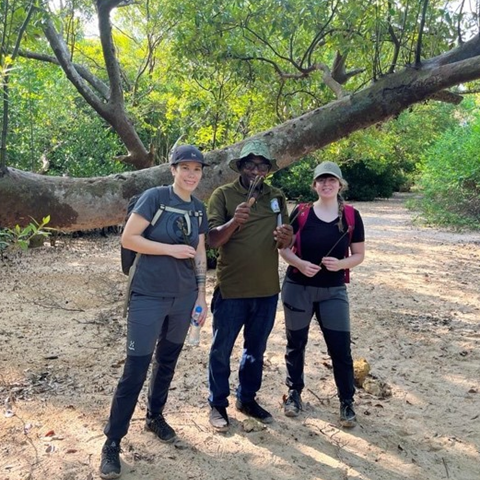World Wetlands Day: Emphasising the vital role of mangrove forests

World Wetlands Day is celebrated each year on 2 February. The commemoration raises awareness and increases people’s understanding of the critical importance of wetlands. This day also marks the anniversary of the Convention on Wetlands, which was adopted as an international treaty in 1971.
Why World Wetlands Day?
Nearly 90% of the world’s wetlands have been degraded since the 1700s, and we are losing wetlands three times faster than forests. Yet, wetlands are important ecosystems that contribute to biodiversity, climate mitigation and adaptation, freshwater availability, world economies and more.
Safeguarding mangroves for our future
In a world where environmental concerns are at the forefront of global discourse, one often overlooked ecosystem has emerged as a player in the fight against climate change and biodiversity loss: mangrove forests. As part of the MSc course “Sustainable Forestry and Land Use Management in the Tropics”, a group of students from SLU embarked on a field trip to Tanzania, where they delved into the intricacies of mangrove ecosystems in the coastal district of Tanga. Led by a local guide, affiliated with the Tanzania Forest Service Agency, the expedition shed light on the unparalleled significance of mangroves and the urgent need for their conservation.
Read the whole blog post written by SLU students Josefine Norgren and Johanna Pettersson
A talk about wetlands at SLU
Listen to a talk about wetlands on 2 February at SLU and online (in Swedish):
Worth Knowing: Restoring wetlands – does it make a difference?
There is a growing awareness today that wetlands are important for biodiversity, climate adaption, water quality as well as human well-being. Therefore, we restore wetlands and create new ones in the hope of contributing to a more sustainable Sweden. But does it really work? Two researchers from the Department of Aquatic Sciences and Assessment tell us what they know.
Contact
SLU Global supports SLU's work for global development to contribute to Agenda 2030.
SLU Global
Division of Planning and Research Support
PO Box 7005, SE-750 07 Uppsala
Visiting address: Almas Allé 7
global@slu.se www.slu.se/slu-global
Subscribe to our newsletter and follow us in social media.
Links:
At SLU we research wetlands on a local and a global scale.
Search for "wetlands" on our website to find out more on what we do.